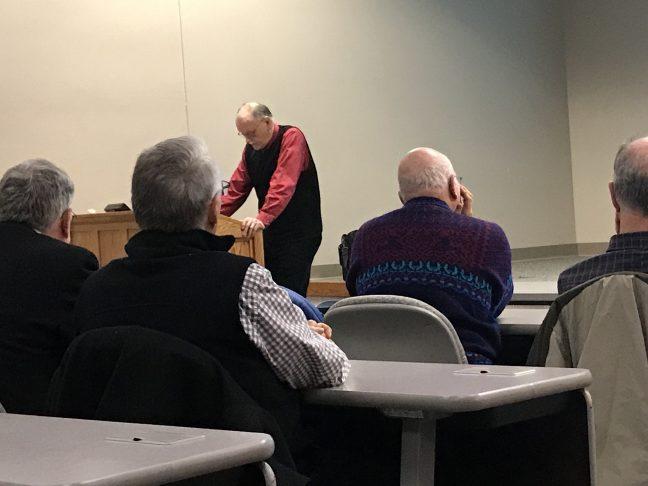Alfred W. McCoy, University of Wisconsin professor of Southeast Asian history, spoke Monday evening about his recent book “In the Shadows of the American Century: The Rise and Decline of US Global Power,” which discusses what he views as America’s declining power on the world stage.
McCoy gave a brief history lecture to provide background information about how global power is won, exercised and lost, before transitioning to current events and future projections.
The United States Intelligence Council predicts China will become a bigger economic superpower than the United States by 2030, McCoy said.
“By 2014, China took the lead [in patents] with nearly half of all world wide patents, filing 801,000 patents compared to just 285,000 for America,” McCoy said.
In addition to patents, evidence suggests China also exceeds the U.S. in public education.
Vox co-founder finds Trump to be conventional on domestic policy, troubling on foreign policy
In the results of a study where 15-year-olds were tested in math and science worldwide, American students placed lower than China. Throughout the past few decades, former presidents’ attempts to improve scores through education initiatives actually lowered them, McCoy said.
McCoy indicated these findings are significant because the country’s future innovators must be well educated to keep the U.S. competitive in the global economy.
Though the U.S. may have a leg up on China in some aspects, McCoy said China is currently building a trade system independent of the U.S. in light of President Donald Trump’s decision to pull the U.S. out of the Trans-Pacific Partnership trade agreement.
A new deal has been revised without the United States, which created a pathway for China to gain more trade wealth, McCoy said.
Wisconsin Republicans criticize Trump’s plans for tariffs, citing price increases, trade tension
Due to heightened tension, McCoy predicts a borderline World War III between the U.S. and China in 2030 as they race to the top of the economic ladder.
Jack Plasterer, a first-year UW graduate student, asked if there is potential for use of a combination of the U.S. Air Force and NASA in warfare, either against China or a different state.
In response, McCoy said space has already been weaponized, starting with when the U.S. launched the first Global Telecommunications Satellite System in 1967 and later developed the Global Positioning System in the 1980s. Currently, communications for land, air and naval vessels are all accomplished through satellites.
McCoy said there is a lack of awareness about the key components of what decline means for U.S. global power on both the right and left of the political spectrum. Many politicians’ priorities are domestic instead of international, McCoy said.
“The United States has been on top for so long, we no longer know how we got there,” McCoy said.
















